Is ‘value chain’ the same as ‘supply chain’? That was the opening statement to be discussed amongst the participants of this week’s training in Nakuru, Kenya. Conclusion: supply alone doesn’t necessarily improve society. Adding value does.
Thought provoking and participatory, that are the key words which describe the learning process of the topic ‘Future-proof Value Chain Management in Agriculture’. The second training week of NUFFIC project ‘Market driven training programs for the horticultural sector in Kenya’ emphasised on the sector-wide need to better understand the dynamics and interrelations in Kenya’s horticultural value chains to steer towards the sector’s transition into future proof agricultural production in line with the SDGs and climate goals.
Since this requires a cross-sectoral, integrated approach, various stakeholders in the value chain were represented FPEAK, Kenya School of Agriculture, Sotik Tea, Ufanisi Group and Independent consultants in the sector. The training participants involved both the educational and private sector to welcome real life challenges and developments into the training room for a maximised learning experience.
The training objective: To develop knowledge, techniques and skills related to analysing, assessing and improving important horticultural value chains in Kenya to induce the transition into future-proof, inclusive and profitable agricultural production for (inter)national markets.
A 4-day practical, interactive approach was used by trainers Mark and Lisa, in which the basic principles of value chain management were taught, followed by a value chain analysis of the current situation and possibilities for holistic interventions to improve the business, but more importantly: the environment and society as a whole.
During the week, the participants worked towards ready-to-implement value chain improvement interventions based on identified challenges in the blueberry, cabbage and French beans value chain, using the Value Chain Improvement Cycle framework. Step by step, the participants formulated improvement interventions to directly implement into their daily businesses upon completion of the training.
Group work and interactive sessions were used to strengthen the newly acquired knowledge and skills and discuss insights with their peers, which resulted in co-creation of creative ideas to improve education and the private sector.
Some highlights of the week:
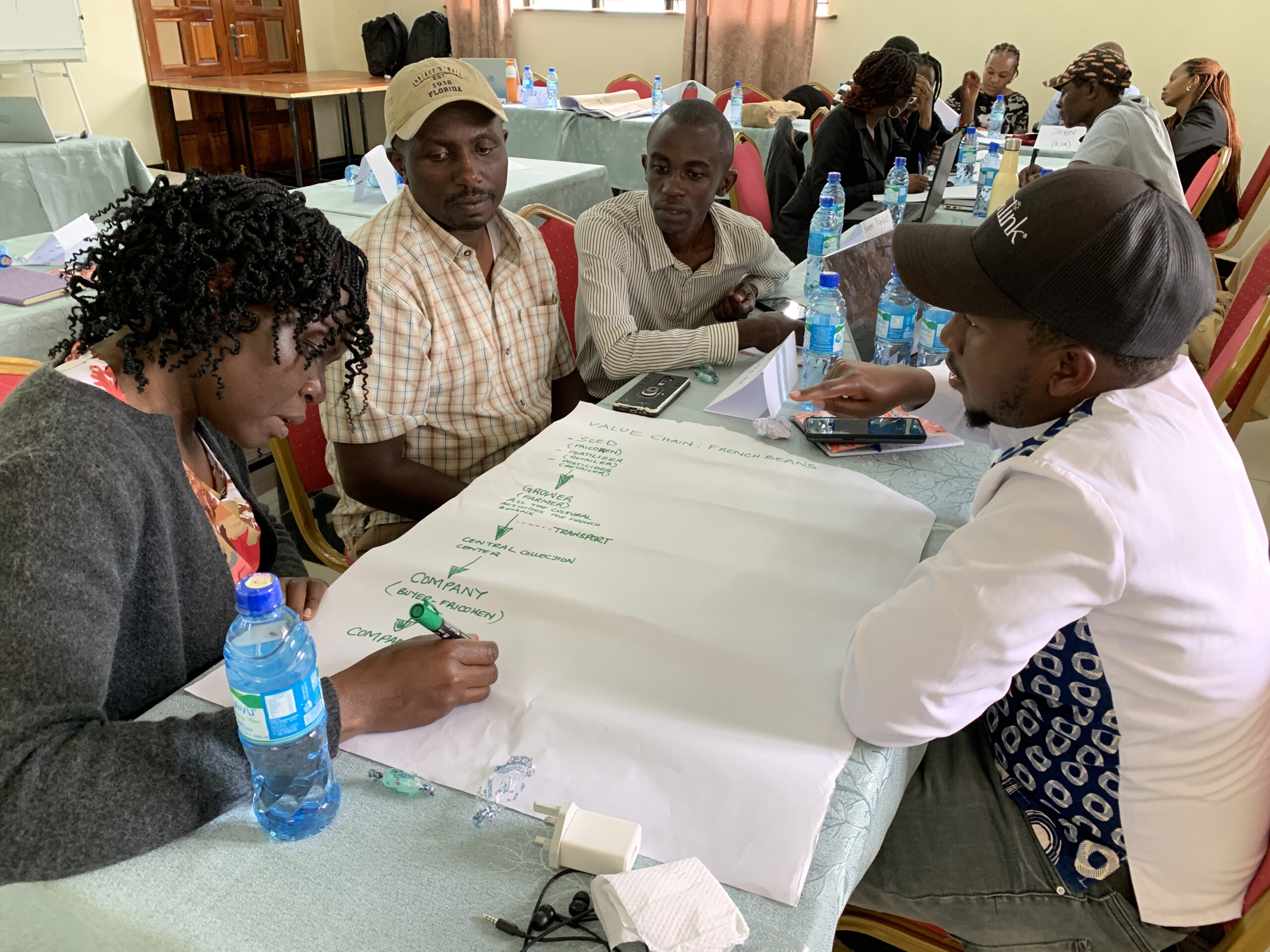
During the exercises
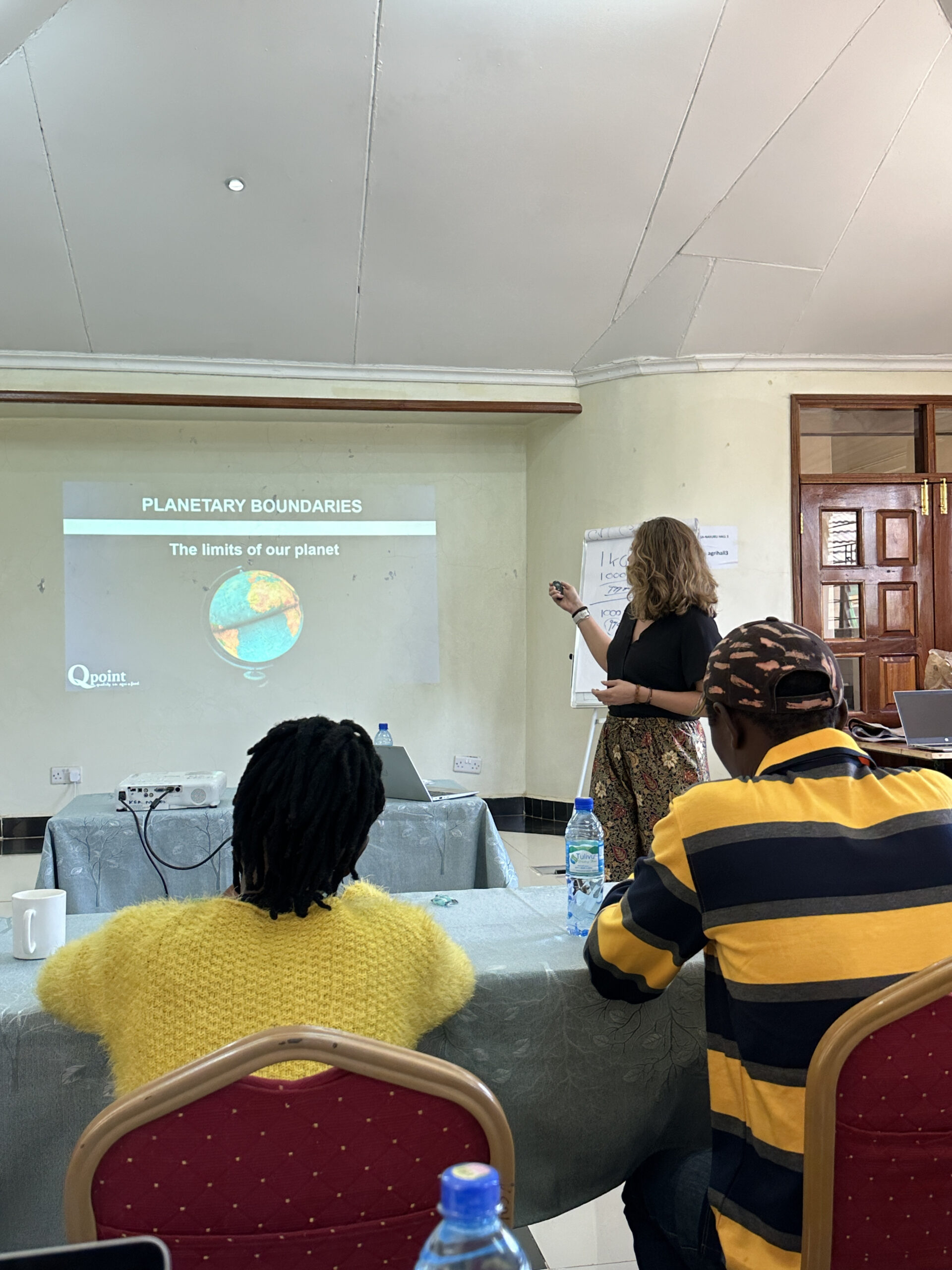
Lisa talking about planetary boundaries
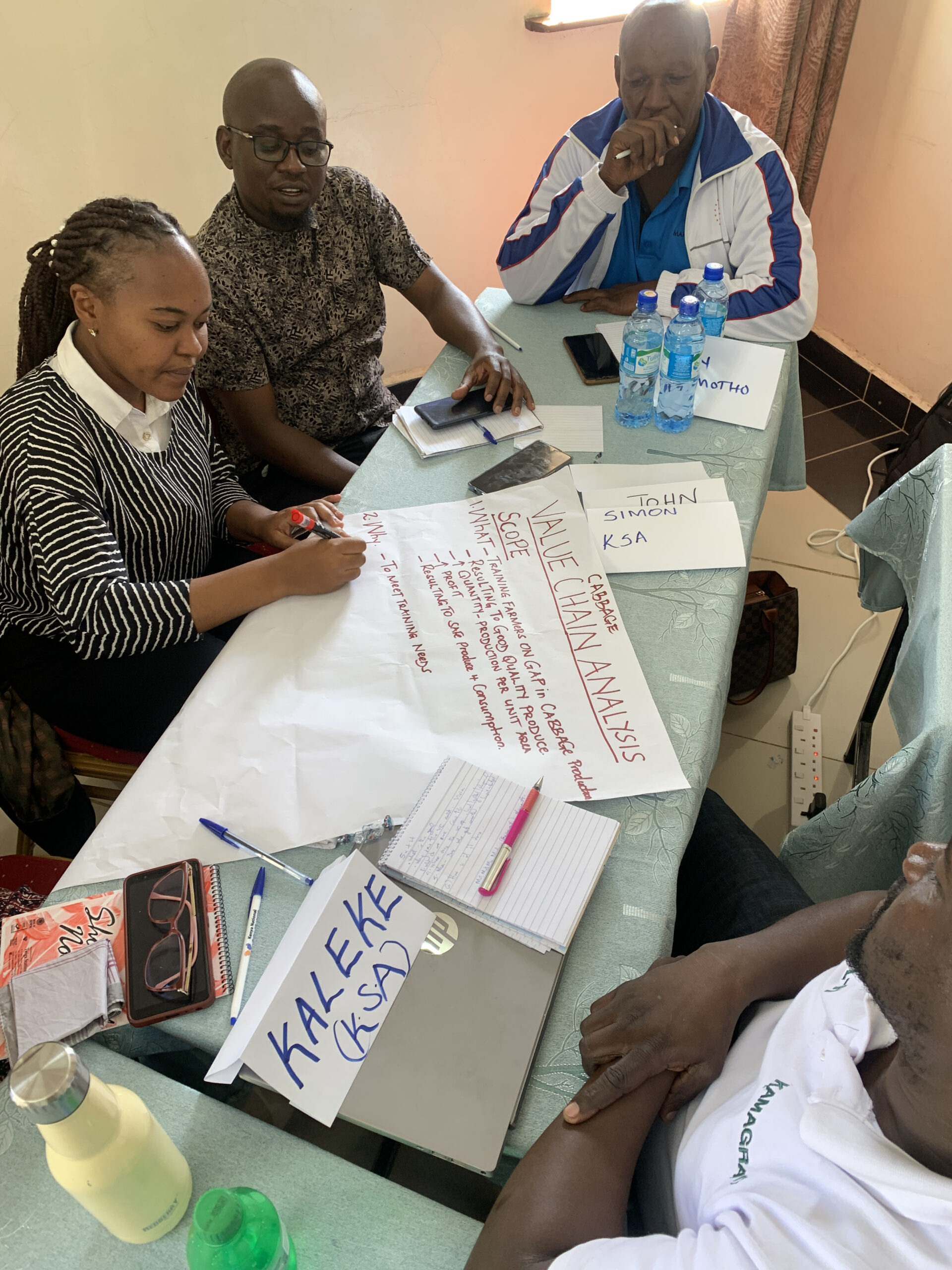
Value Chain Management – scoping
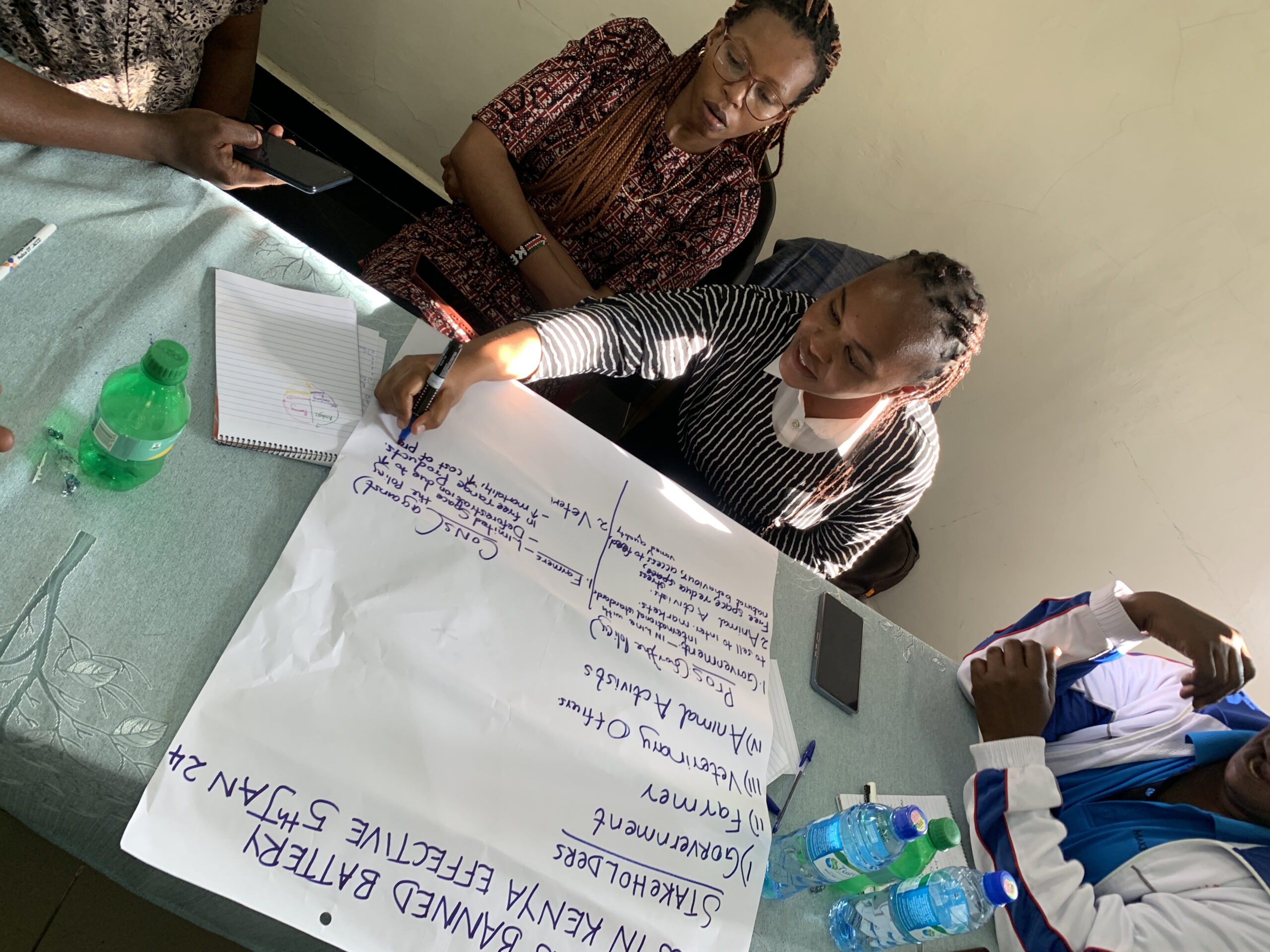
Value Chain Management – Stakeholder Analysis
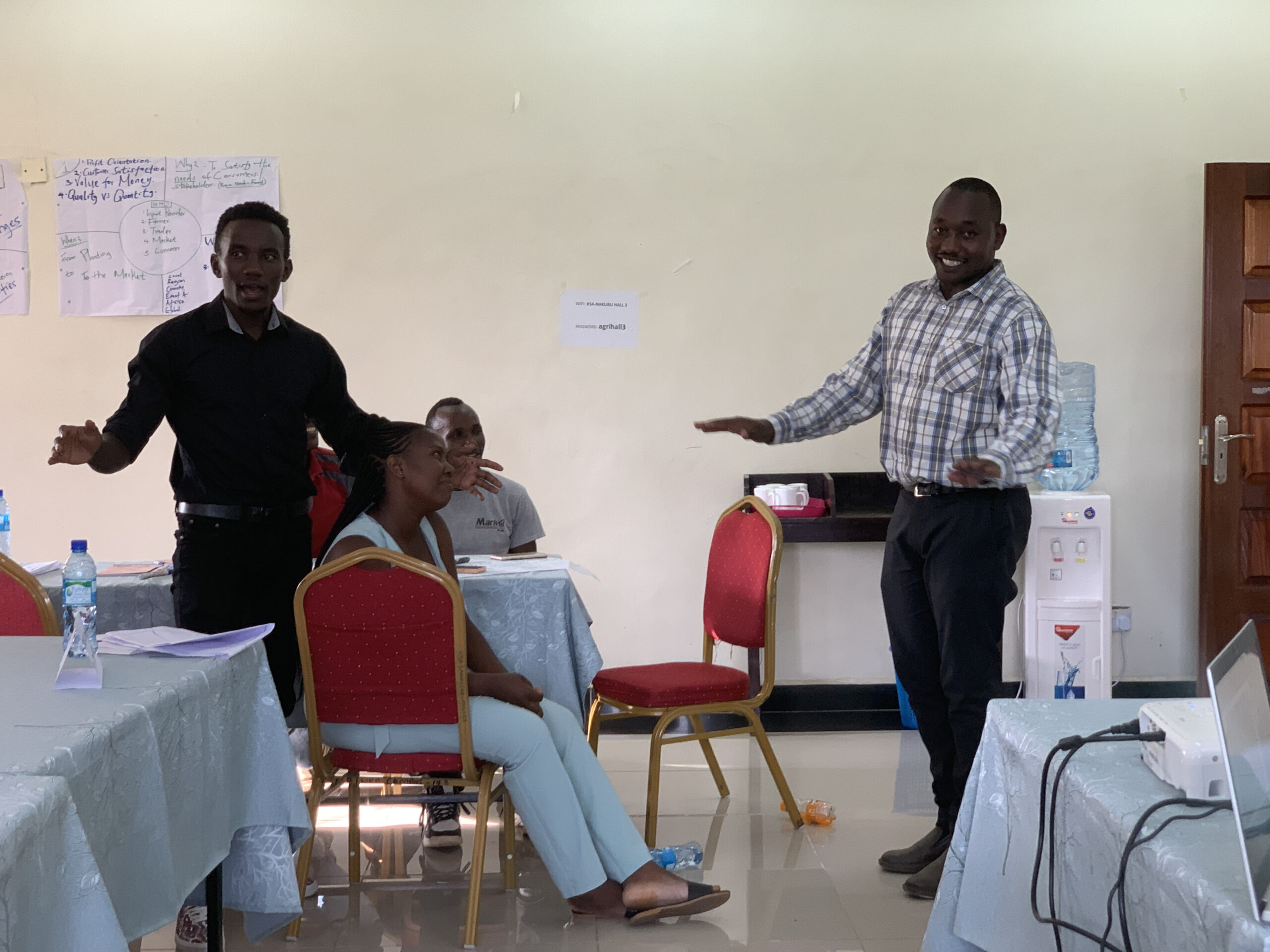
Roleplay discussion
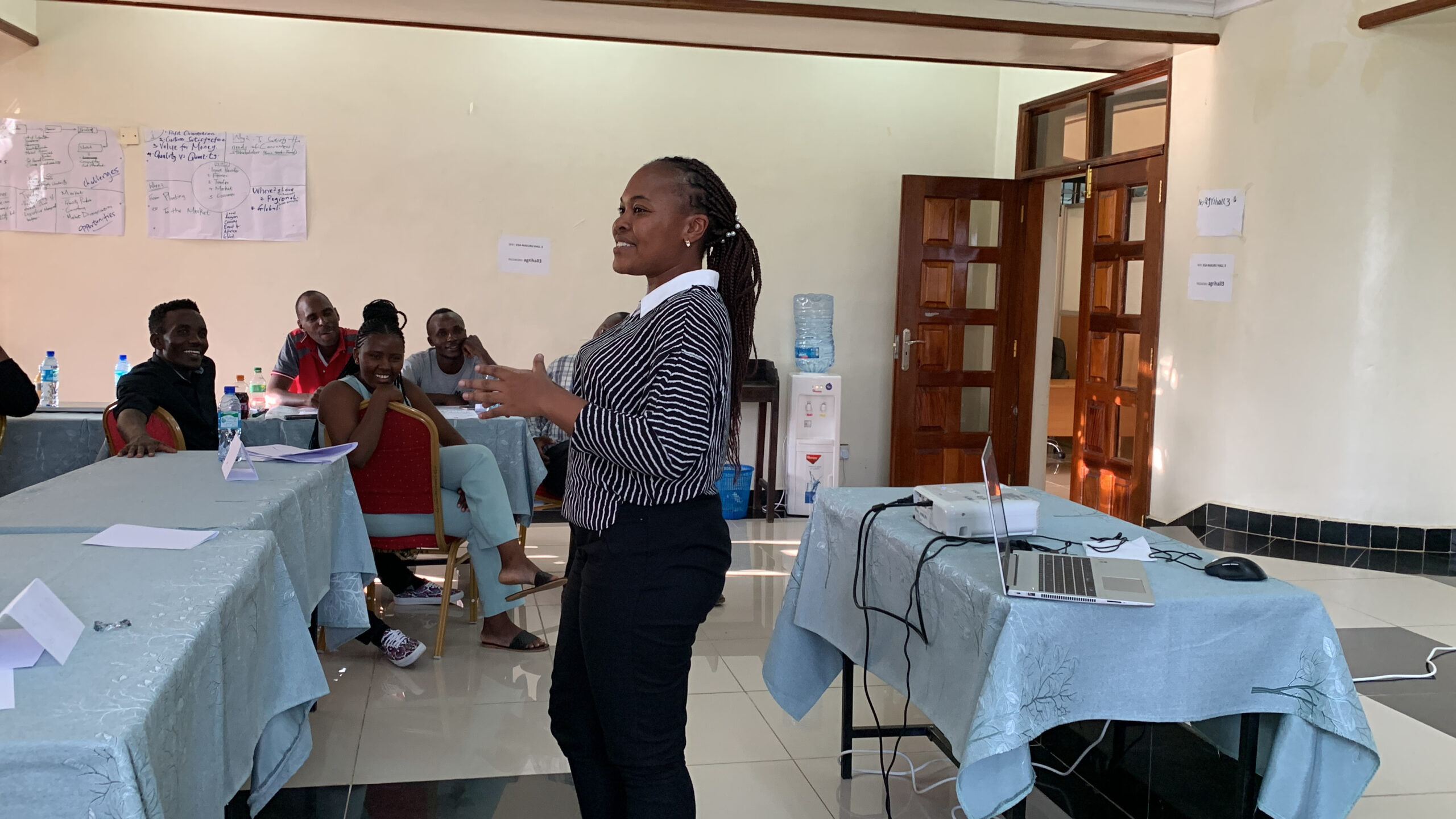
Stella presenting stakeholder interest
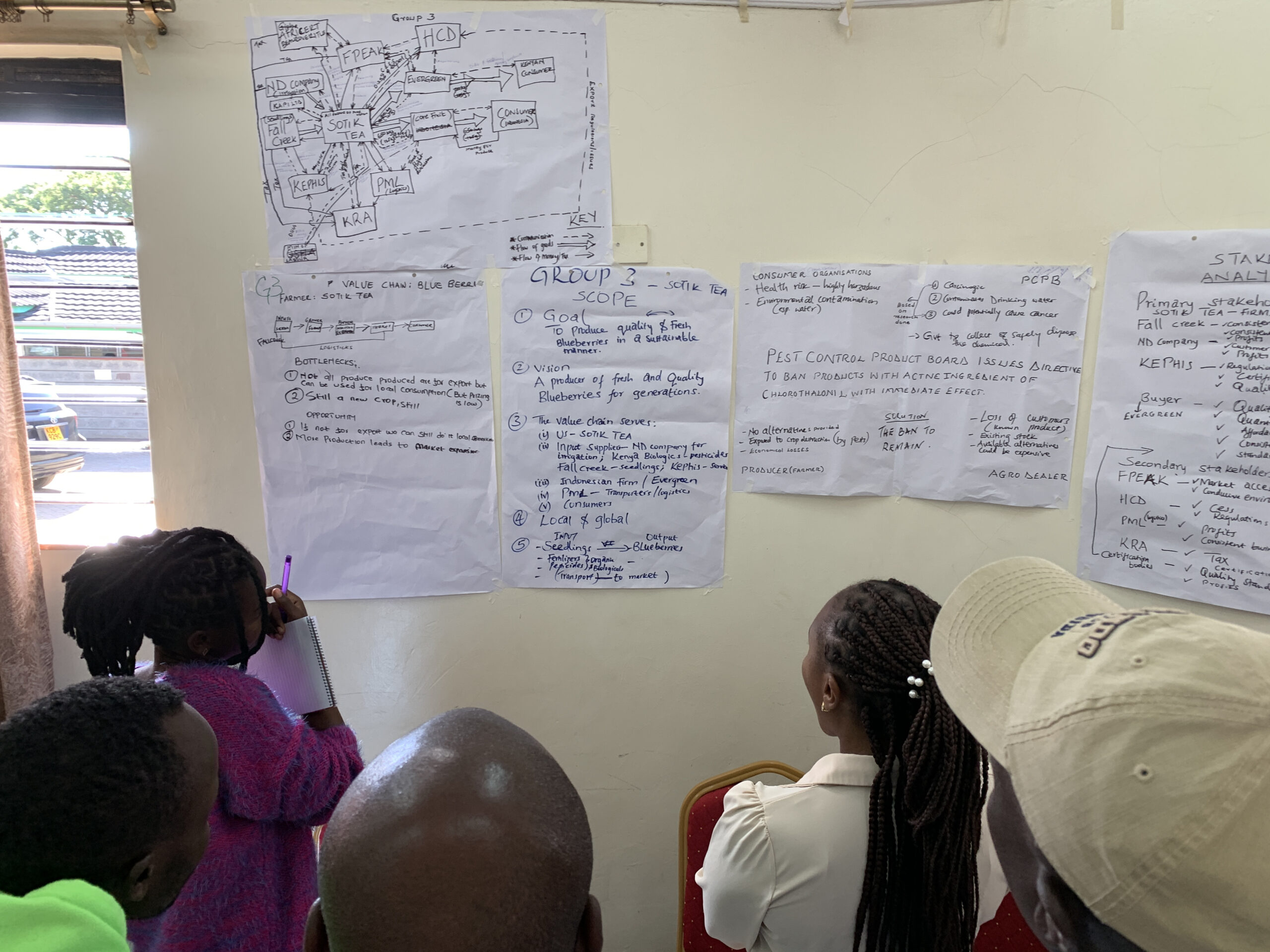
‘Field trip’ to other group’s value chain analysis
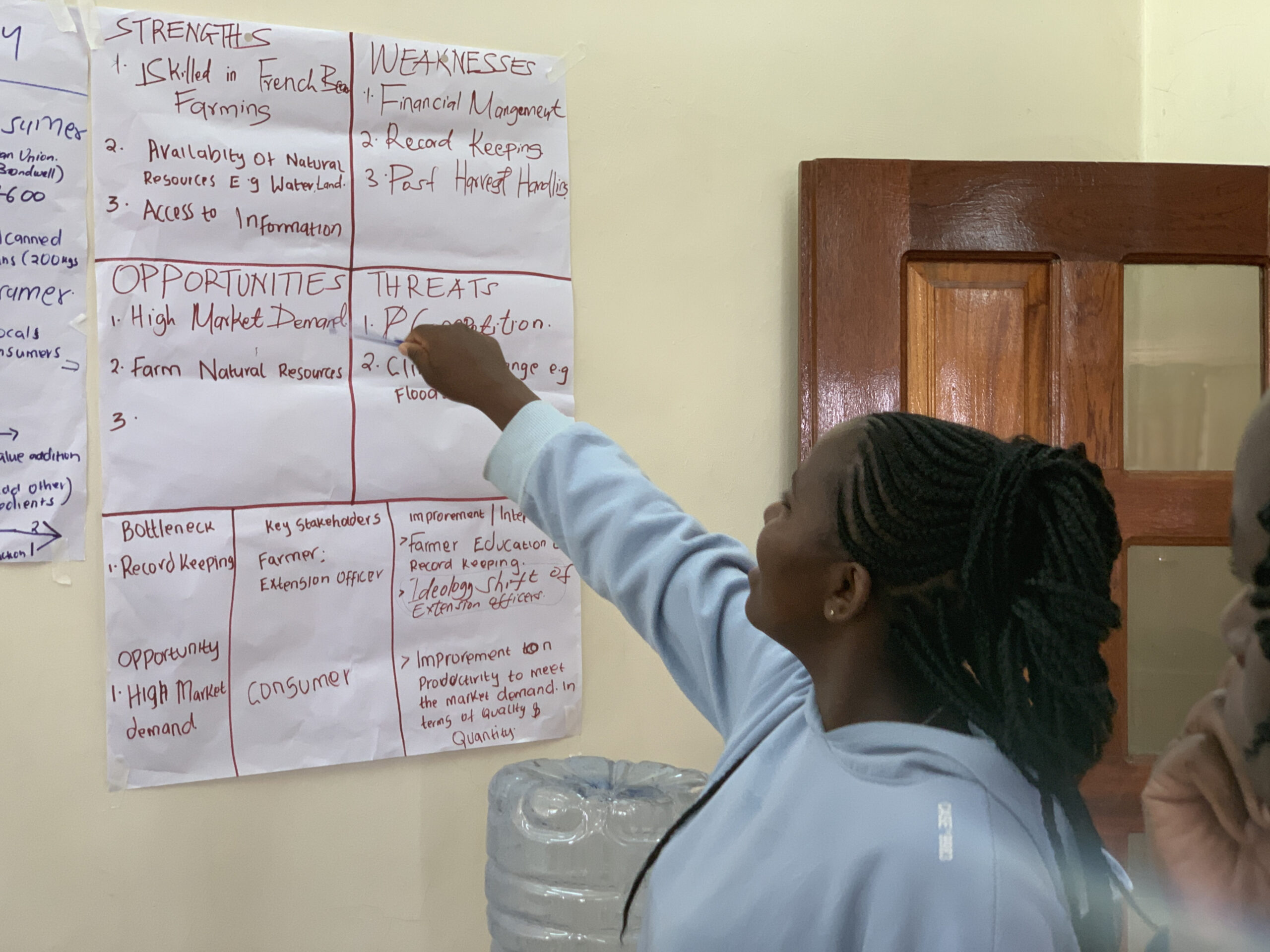
Value Chain management – SWOT analysis
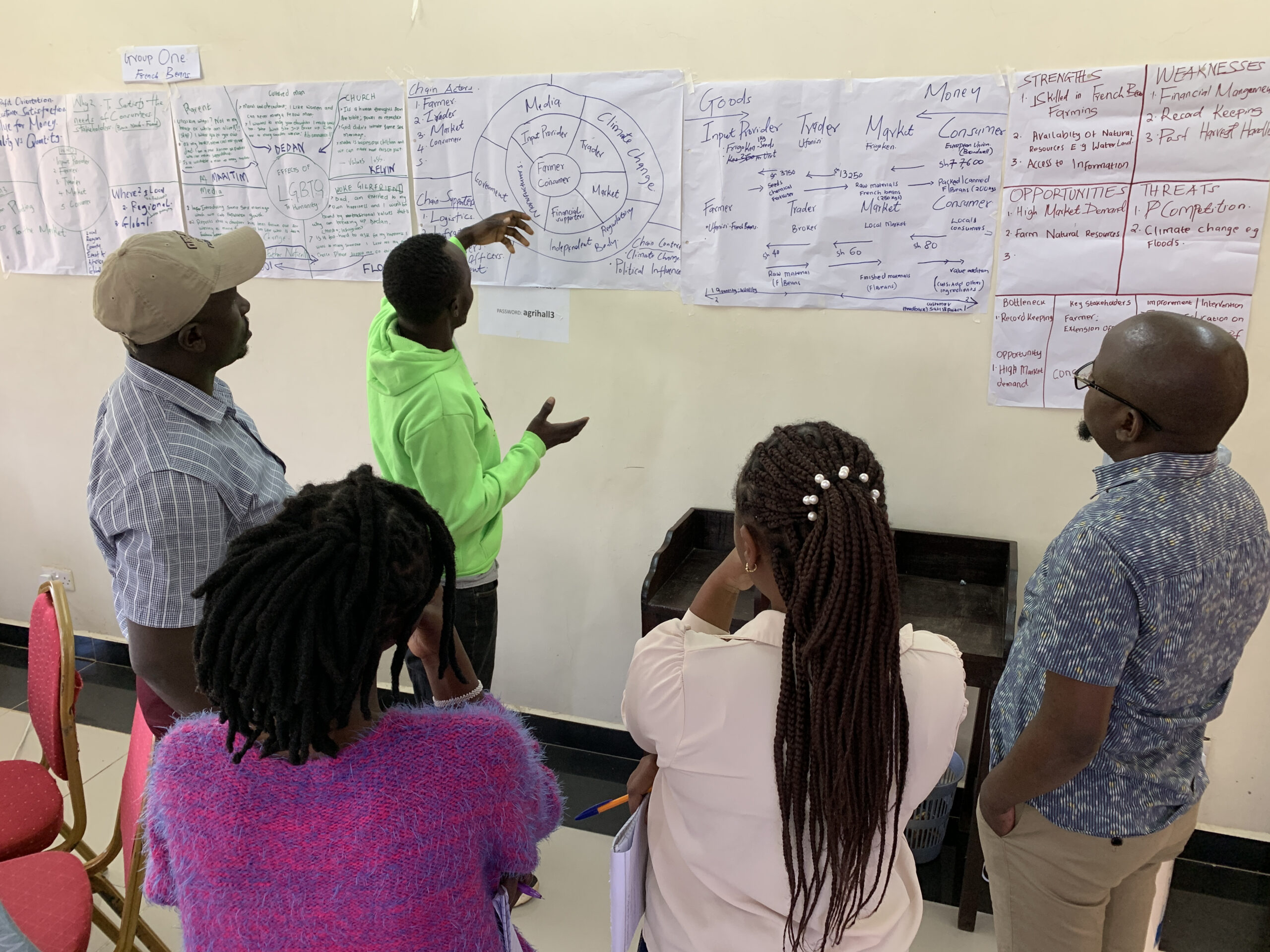
Value chain presentation
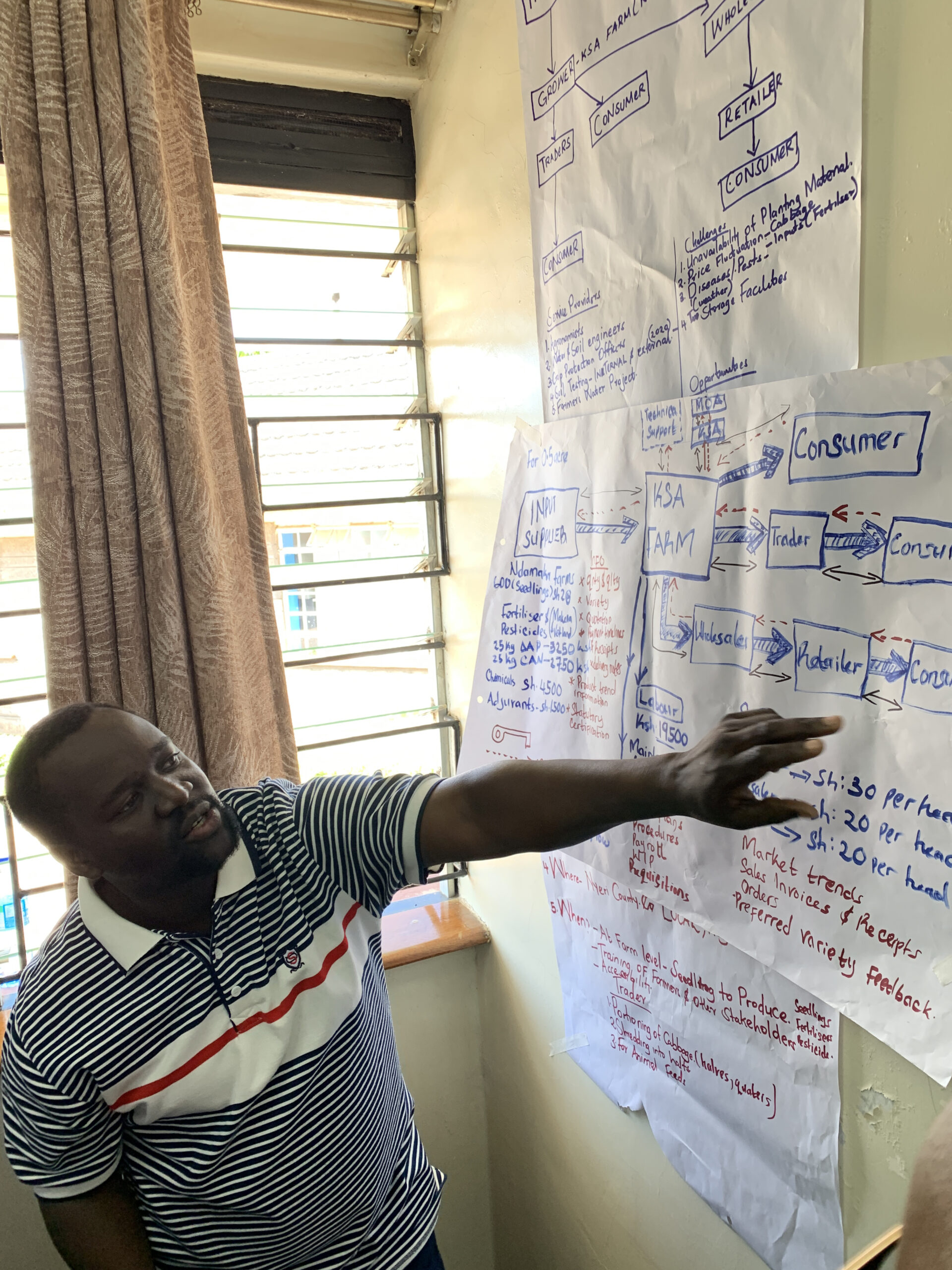
Sam presenting the Network Analysis
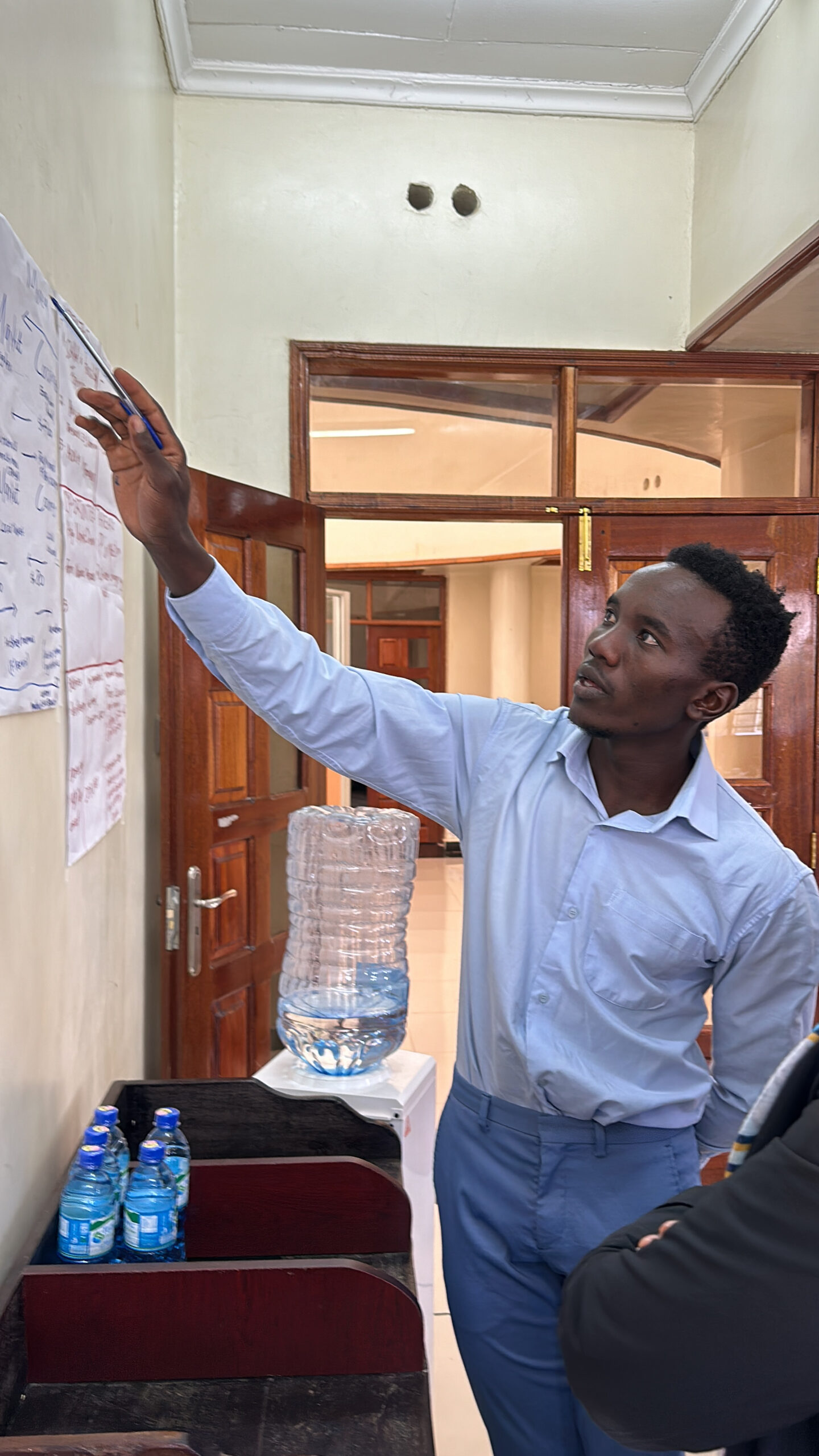
Kemboi presenting the Value chain
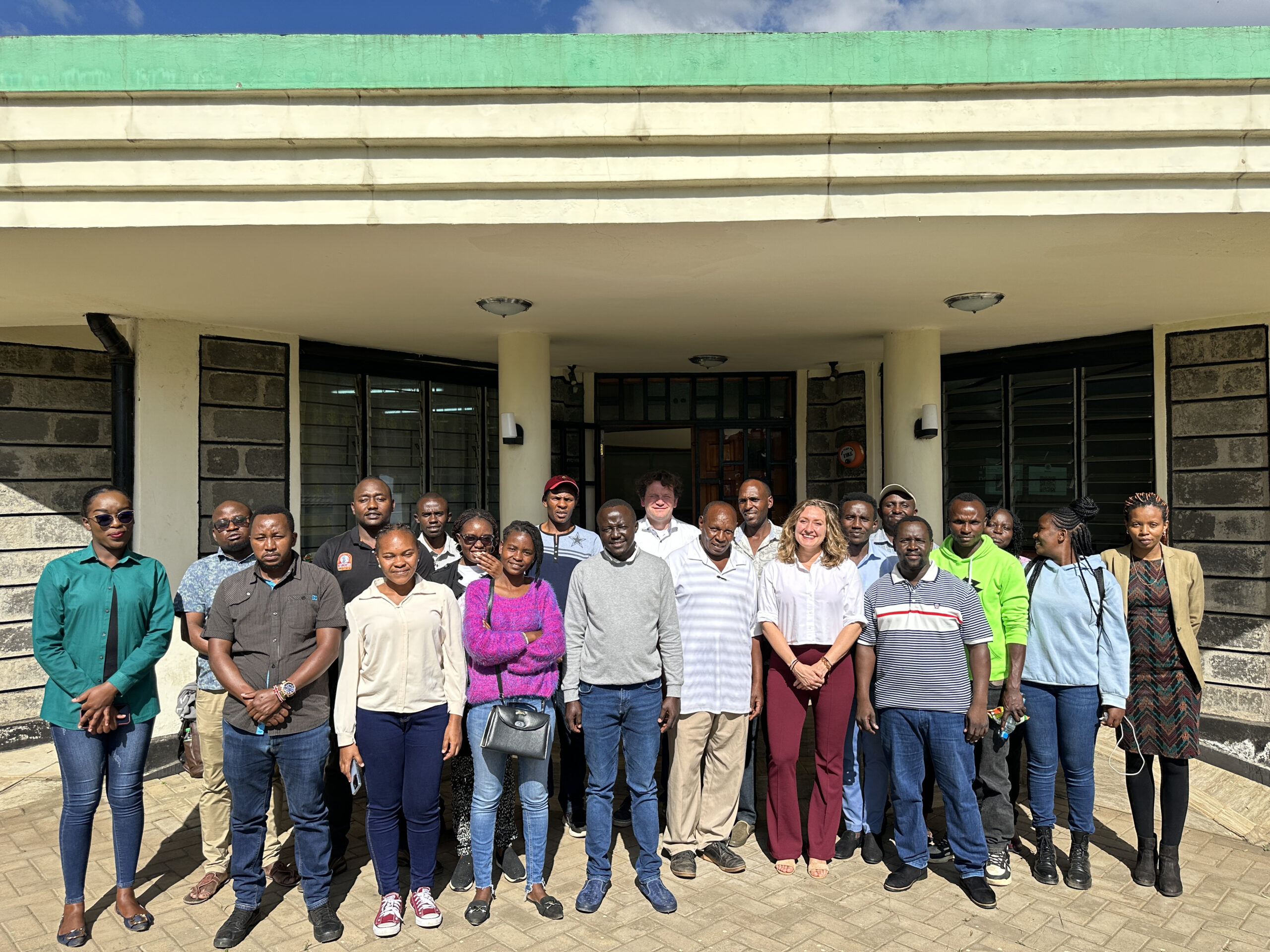
The participants group
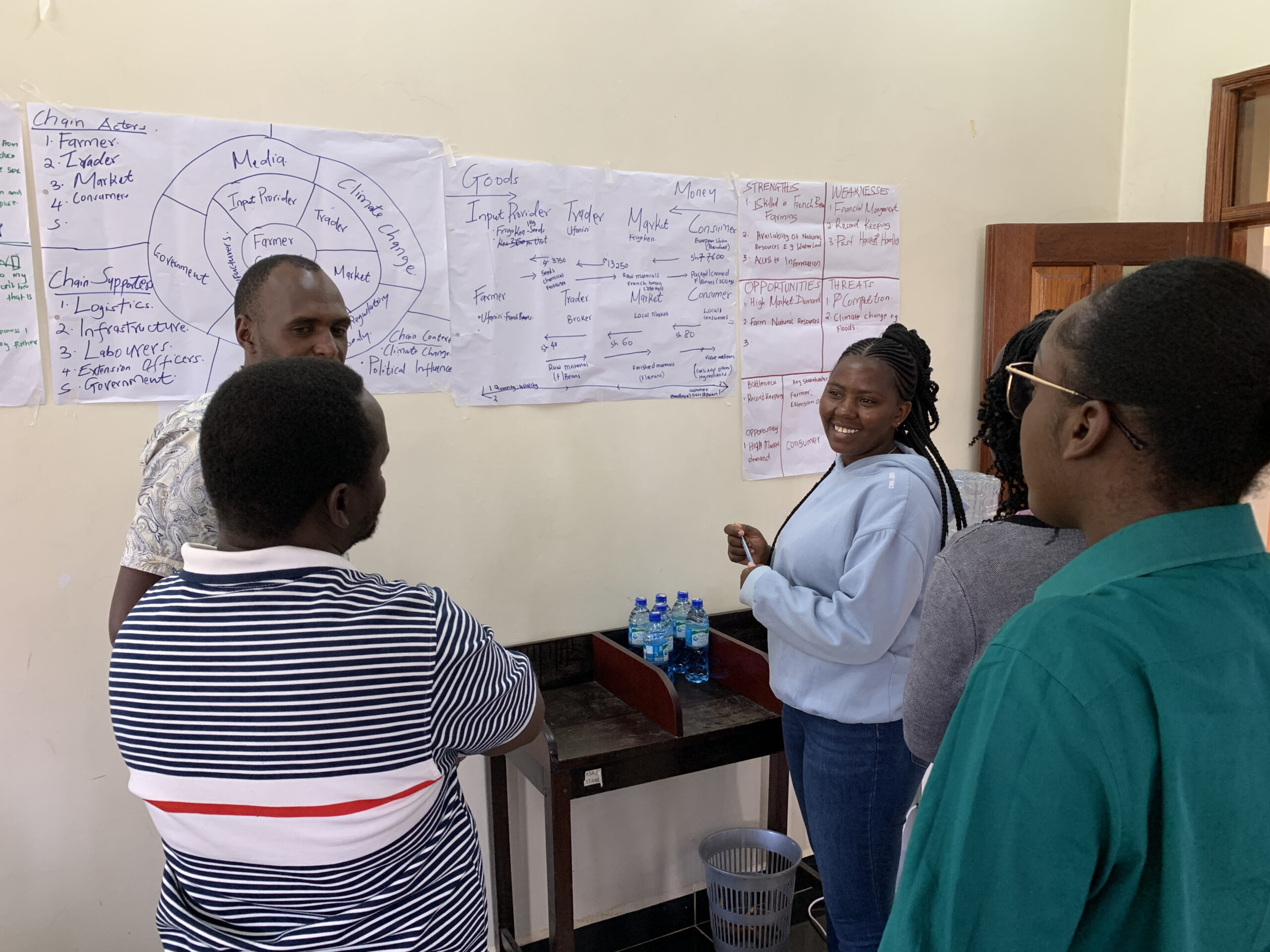
Stakeholder analysis presentation
Thank you very much for hosting our training and your active participation, we are looking forward to the future trainings to build onto this week!



